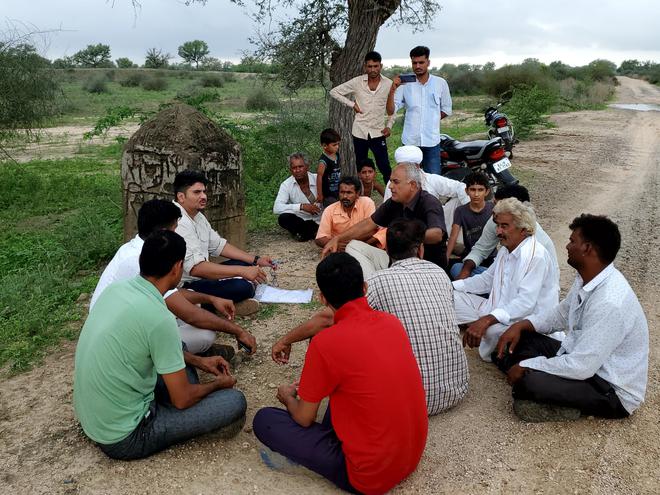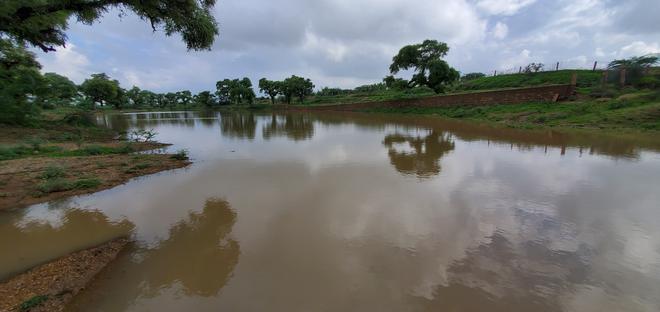Even as the incessant monsoon rains and flash floods in Jodhpur city have made headlines, a lesser-known story is unfolding in western Rajasthan’s sleepy countryside - traditional water harvesting structures are brimming with water amid the arrival of rains.
Popularly called nadis or talabs (ponds), these are shallow depressions strewn across the rural landscape in the arid regions of Jodhpur and Barmer districts. The water collected in these tanks will quench the thirst of cattle and human beings as well as wild animals during the dry months later in the year. The nadis have been a part of rural life for ages.
The rural communities utilise these structures for storage of rain water with the application of traditional knowledge and locally available materials in view of the highly variable and scanty rainfall in the State. However, Jodhpur received abnormally high rains this year, which created flood conditions in the historic city.
But not all nadis are in good shape anymore. Several of them have fallen into disrepair, while others are unable to store water because of cracks in their embankment walls. Villagers who are aware of these nadis and have made efforts to maintain them are smiling now, thanks to the bounty of rain gods.
The Ramrawas Kalan village, situated 49 km north-east of Jodhpur in Bhopalgarh tehsil, has two nadis and both undergo periodic maintenance. Both are starting to fill up now with the monsoon rains. The two structures, called Deoli and Chan, which is the bigger one situated 10 km away, are in Orans or sacred forest groves of the village. The Orans are associated with the local deities.

A researcher and academician from MacEwan University in Canada, collaborating with Jodhpur's Jai Narain Vyas University to carry out a field study on conservation practices in western Rajasthan, has identified many varieties of trees which are growing well in these Orans, leading to slowing of water run-off.
“Rather than causing the flash floods currently being witnessed in several cities, this slower run-off of rain water has led to more percolation in the local nadis and ponds. The Orans are mini-oases in an otherwise arid landscape,” Rohit Jindal, associate professor of quantitative methods in MacEwan University's Department of Decision Sciences, told The Hindu.
Dr. Jindal, who teaches courses on sustainability and environmental management, said there is no danger of breach of the water-holding impermeable layer of soil in Ramrawas Kalan. This is because of the local Bishnoi community has worked hard to ensure maintenance and functioning of Orans and nadis.
The Bishnois, who follow the commandments for protecting the flora and fauna, have been contributing labour and money for the maintenance works for nadis, wherever necessary.
Dr. Jindal also saw a herd of more than 10 male blackbucks and footprints of wild boars next to the Chan nadi. He said these local systems were vital to maintaining resilience against the onslaught of global warming and climate change. There might not be any flash floods if the Ramrawas Kalan model was followed, he added.

Jodhpur-based environmentalist Swapni Shah described Orans and nadis as “mixed water-pasture regimes”. She said these regimes needed careful maintenance to protect their water-holding capacity and save rain water.
Dr. Jindal, whose areas of expertise include applied econometrics, ecosystem payments and international carbon markets, said even though Orans and nadis were fast deteriorating, there were substantial areas where these resources had not been documented. Western Rajasthan districts are suffering from increased incidence of heat waves and erratic rains potentially because of climate change, he said.
Dr. Jindal has recommended that village and panchayat-based systems managing the local natural resources should be strengthened without delay. “Well-functioning Orans and nadis will create micro-climates which will help improve local resilience against the vagaries of global warming and climate change,” he said.

.png?w=600)





